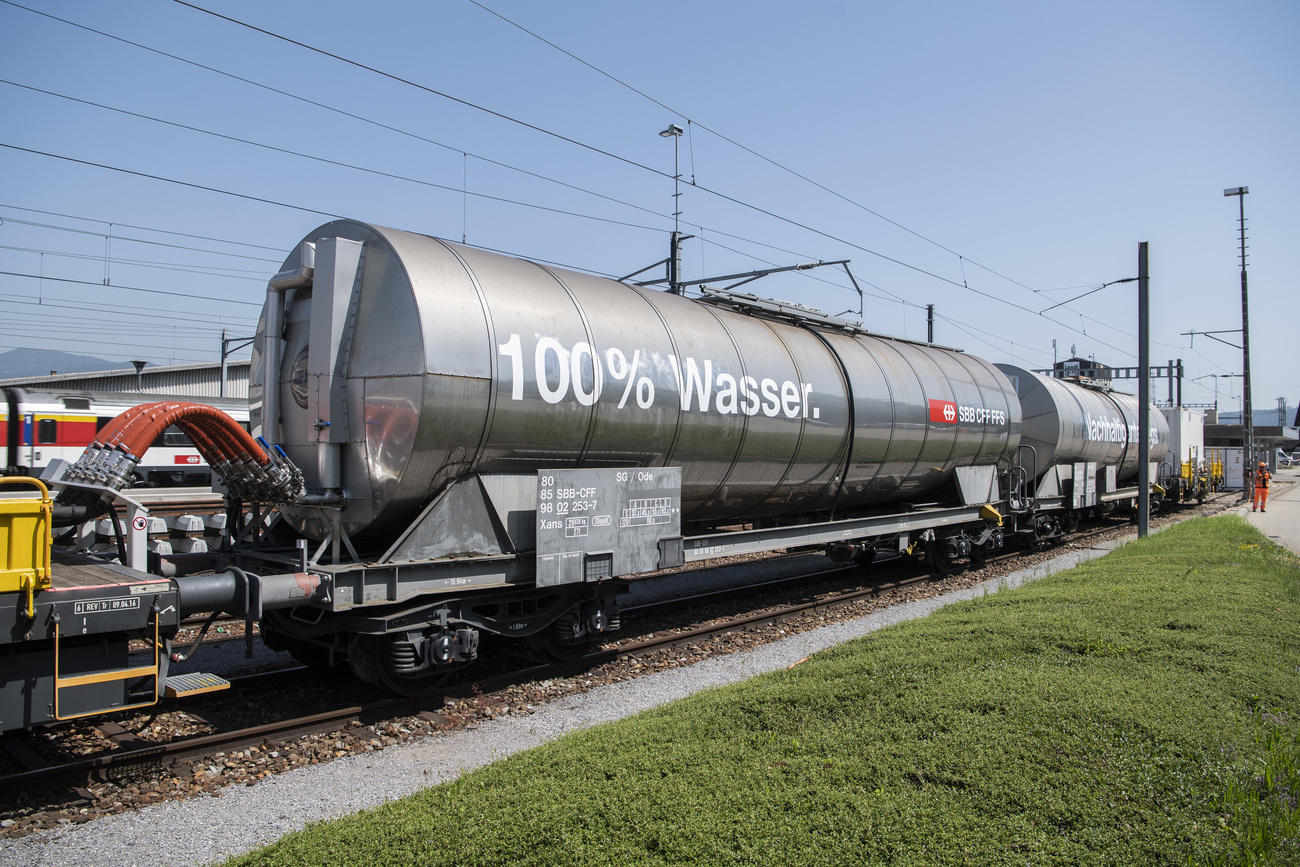
Swiss railways to phase out use of glyphosate by 2025

The Swiss Federal Railways is to stop using the controversial herbicide glyphosate by 2025, the company has announced. It is looking at alternatives.
It said that it uses 65 tonnes of glyphosate a year. Currently glyphosate is the only permitted herbicide for track use in Switzerland, the company said, adding that it used the product conservatively.
“The use of herbicides has a negative impact on the environment. The Swiss Federal Railways has therefore fixed the objective of stopping using glyphosate to maintain its tracks and to fight against weeds and use instead more environmentally-friendly methods,” it said in a statementExternal link.
The company is testing alternatives, which include hot water, covering plants and biological herbicides. One method will be chosen.
The railways said that it was in the process of developing a vehicle that sprays hot water, at a cost of around CHF1 million ($1 million). This is considered one of the more promising methods, it added.
Controversy
The World Health OrganizationExternal link says glyphosate is “probably carcinogenic”. Last year the Swiss government said that it did not consider the widely-used product a health risk.
+ What is the Swiss government’s view on glyphosate?
In neighbouring Germany, the use of glyphosate, the subject of more than 10,000 lawsuits in the United States over claims it causes cancer, will eventually die out, German Chancellor Angela Merkel told the country’s lower house on Wednesday.
Merkel’s view is seemingly at odds with that of Bayer, which acquired the pesticide along with its takeover of US seed maker Monsanto, which earlier this month said it saw a future for the product.

In compliance with the JTI standards
More: SWI swissinfo.ch certified by the Journalism Trust Initiative






























You can find an overview of ongoing debates with our journalists here . Please join us!
If you want to start a conversation about a topic raised in this article or want to report factual errors, email us at english@swissinfo.ch.